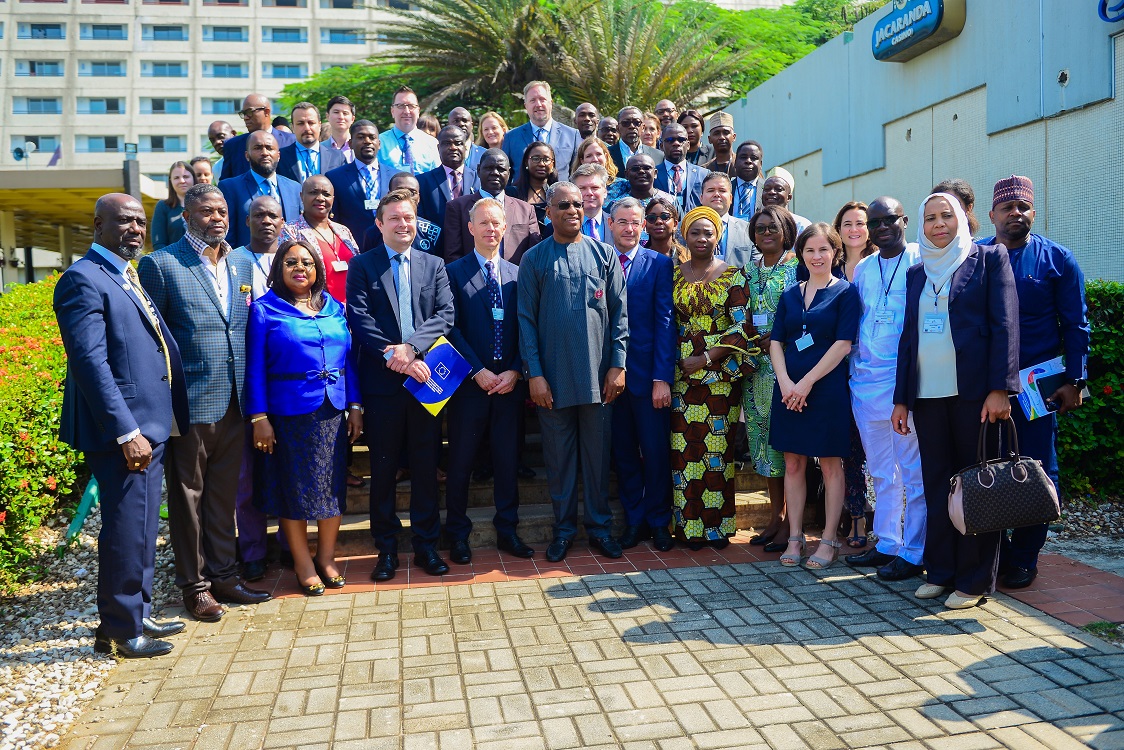Abuja, 5-6 November 2019, hosted by Nigeria and co-chaired by France and Belgium.
On 5-6 November 2019 a technical workshop entitled "Diaspora remittances and sustainable development" was held in Abuja. This workshop, opened by the Nigerian Minister of Foreign Affairs and co-chaired by France and Belgium, was structured into 5 working groups, all aimed at presenting good practices (a dozen in total) in the field of the mobilisation of remittances for productive investments in countries of origin.
The workshop was an opportunity to exchange views between experts from the public and private sectors and Focal Points of the Rabat Process. The workshop's exchanges answered the following question: How to optimize the contribution of these remittances to the sustainable development of the countries of the Rabat Process region?
The workshop was part of the political framework of the Marrakech Action Plan (2018-2020). It responded particularly to three actions associated to Objective 1, "Maximize the positive impact of regular migration for development", namely:
- Identify and share good practices that allow countries to better understand the profiles of their diasporas;
- Contribute to reducing the costs of remittances and to facilitating remittances by migrants to their countries of origin, in particular by supporting innovative or existing initiatives using the potential offered by digitalization;
- Promote initiatives to support entrepreneurship and productive investment by young people from the African diaspora.
Five working groups were organised during the two-day meeting:
- (i) Remittances for the consumption, well-being and the development of households/families moderated by Belgium;
- (ii) Remittances for public investments, in connection with the State: the "diaspora bonds", moderated by Valérie Wolff, senior independent expert;
- (iii) Diaspora investments to finance micro-, small- and medium-sized enterprises and income-generating activities moderated by France;
- (iv) Digitisation of remittances, moderated by Nana Yaa Boakye-Adjei, Deputy Director, Developing Markets Associates;
- (v) Savings mobilization and financial inclusion moderated by Hans Boon, Senior Expert at IFAD.
At the end of the workshop, the members of the Process and all the participants made recommendations to governments, members of the diaspora and practitioners (issued in each of the 5 working groups). They were the subject of a final document distributed to all members of the Rabat Process at the end of the technical workshop (see below).
In addition, this workshop was greatly appreciated by the various partners and enabled more operationalisation of the objectives set by the Rabat Process thanks to the participation of experts and the sharing of concrete initiatives. It also made it possible to show the whole diversity of the landscape of remittances, thus justifying taking into account the specificities of each country and each diaspora and, de facto, the need to know the characteristics of diasporas to better use the levers of action.
During these two days, the various experts and representatives of the diasporas showed their commitment to the African continent, as did the governments, which have a key role to play in governance conducive to the use of remittances. Thus, in order to be able to maximize the financial potential of diasporas, it is important to consolidate and build public-private partnerships as well as confidence in the financial mechanisms and services between the diasporas and the governments of origin.
Documents
Recommendations of the working groups (EN)
Recommandations des groupes de travail (FR)






